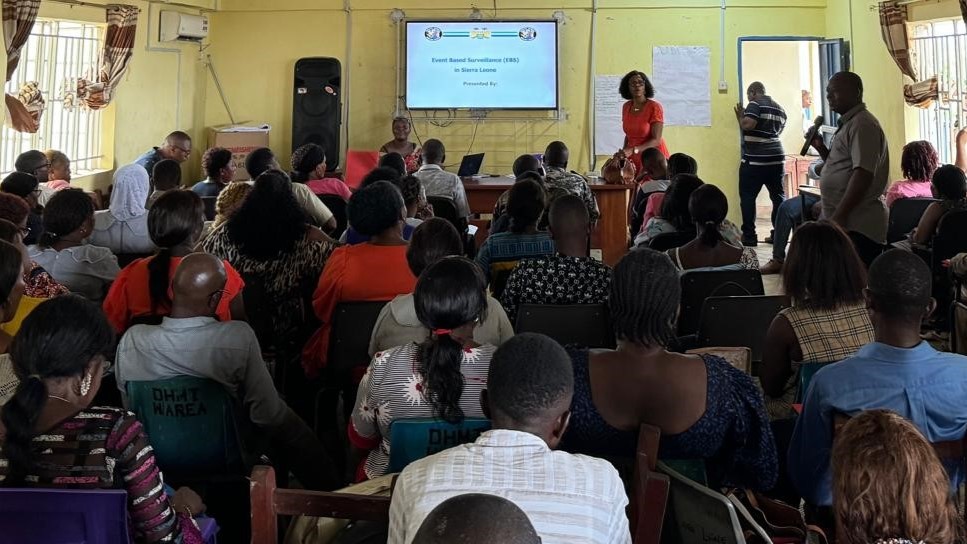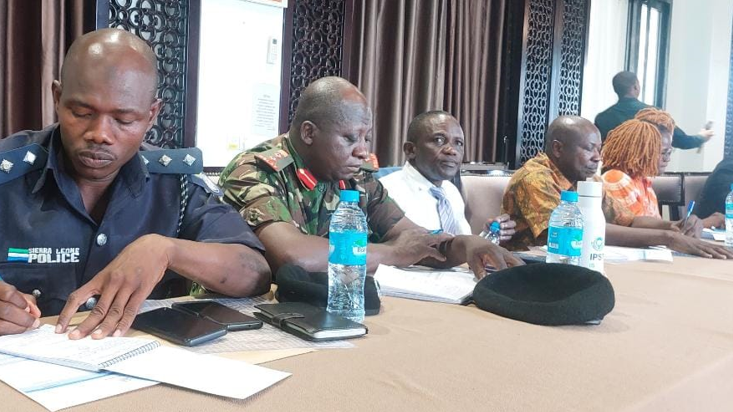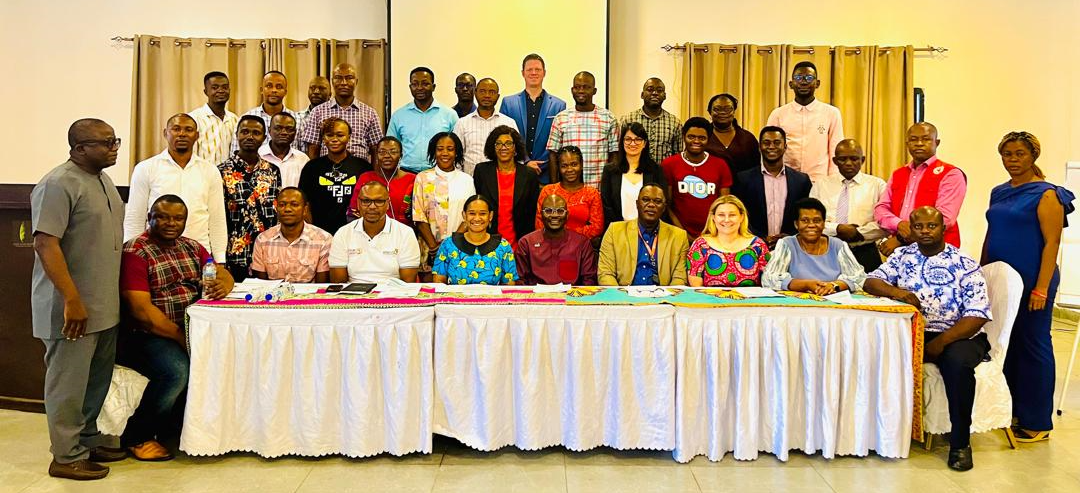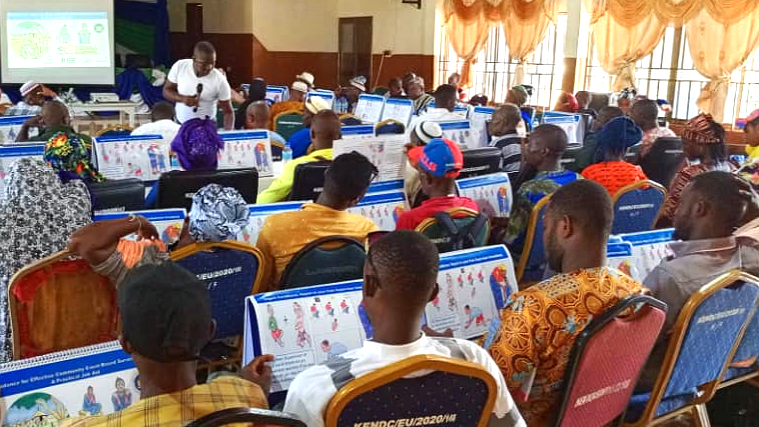At around 10 AM on Saturday, May 18, 2024, crowds were starting to gather at Connaught Hospital, the largest government hospital in Sierra Leone. Dozens of people were reporting unusual symptoms like vomiting, dizziness and weakness. By 2 o’clock that afternoon, a total of 104 residents had arrived at the hospital seeking treatment, raising alarms that the capital city of Freetown was in the middle of a major outbreak of food poisoning.
Hospital staff acted quickly. They traced the source of the outbreak to the Mabella community, a bustling informal settlement in Freetown where all 104 patients had eaten at the same local food vendor earlier that day. Using a purpose-built hotline to report the cases to the Ministry of Health, hospital staff initiated a rapid response within just 12 hours. In doing so, they quickly contained the outbreak, resulting in zero recorded fatalities. Most patients were able to safely return home within a day of receiving treatment.
Paying attention to early signals
There’s a reason Connaught Hospital was able to respond so swiftly. Its staff had recently been trained in “event-based surveillance,” and had learned the importance of sounding the alarm at the earliest sign of a problem. The food poisoning outbreak was a chance to put that training into action.
Event-based surveillance involves paying attention to early signals that indicate a potential outbreak, which can include things like over-the-counter medication sales, social media notifications, and even sudden increases in school absenteeism. It’s designed to complement more traditional types of surveillance, whereby health authorities track and respond to conventional health metrics like confirmed disease cases and rising mortality rates. By focusing on earlier signals, event-based surveillance can allow health authorities to detect outbreaks more quickly, thereby saving lives and protecting livelihoods by stopping outbreaks in their tracks.

The outbreak of food poisoning in Freetown is just one of many recent examples in Sierra Leone where staff trained in event-based surveillance have been able to act swiftly and decisively to change the trajectory of an outbreak. In recent months, social media posts, including WhatsApp messages shared in community groups, have allowed the Ministry of Health to detect and respond to outbreaks of acute watery diarrhea, anthrax, and Lassa fever—and bring those outbreaks to an end. These efforts have been enabled by a partnership between Resolve to Save Lives, the Sierra Leone Ministry of Health, Jhpiego Sierra Leone, the U.S. Centers for Disease Control and Prevention (CDC) and the CDC Foundation.
Putting the right systems in place
“We’re supporting countries to develop their ability to gather epidemic intelligence and effectively act on that information,” said Christie Manthey, an epidemiologist at U.S. CDC who has been leading this work since 2019. “By building event-based surveillance functions at the national level in Sierra Leone and other countries, we’re enabling ministries of health to plug into a global surveillance community that provides a two-way exchange of information and insight.”
“Since we started implementing event-based surveillance, we’ve seen dramatic improvements,” added Haja Fatmata Bangura, an analyst at Sierra Leone’s Ministry of Health. “Putting the right systems and trainings in place, along with dedicated human and financial resources, has allowed us to detect many new signals that would otherwise go unnoticed.”
Event-based surveillance relies on two types of systems—a system to detect new signals and another to log and track events as an outbreak unfolds. During the COVID-19 pandemic, the team led a series of training sessions in collaboration with WHO to introduce staff at the Ministry to some foundational principles in event-based surveillance before familiarizing them with essential software systems. This included Epidemic Intelligence from Open Sources, or EIOS, a WHO-led platform that aggregates signals from different media sources. The Ministry is now using EIOS to bolster its detection and response efforts.

Supporting sustainability
The team developed several resources to support the Ministry’s event-based surveillance efforts, including reference frameworks, standard operating procedures, reporting criteria and templates, information workflows, best practices for signal detection, and training materials. They also joined forces with Africa CDC to develop an event management system that will eventually serve as a single location for managing all the Ministry’s signal and event-related data in the ongoing management of public health threats, including those detected through the EIOS platform.
Beyond getting new information systems in place, the team also trained health facility staff, community health workers, and traditional healers, including in how to use the hotline that helped stop the Freetown food poisoning outbreak. “Really, we’re trying to expand the number of signal detection sources feeding into the Ministry’s routine operations,” said Lawrence Hinkle, an epidemiologist at the CDC Foundation. “Traditional healers play a particularly important role, as residents often speak with them before visiting a health facility. The Sierra Leone team trained over 400 traditional healers as part of a pilot, and they eventually want to expand this approach to the rest of the country.”
“We used a ‘training of trainers’ approach to target community health workers, surveillance officers, hotline coordinators, and representatives from the Ministries of Agriculture and the Environment, who can expand the network by training their communities,” added Sylvester Tamba Yondah, an analyst at Jhpiego Sierra Leone. “This is also the first time that animal and health specialists have been brought together at the district level, which has set a precedent for future collaborations.”

Building on success
Through a new One Health working group—the first of its kind in Sierra Leone—the team will continue bringing together important stakeholders from across sectors. “You never know where the next epidemic is going to start,” said Ibrahim Seriki at Jhpiego Sierra Leone. “That’s why we’re making sure our animal, health and environmental professionals, plus our wider communities, and colleagues in neighboring countries, are all trained to spot and report signals. Through this collective strength, we’ll all be prepared to stop the next outbreak wherever it starts.”
The partnership in Sierra Leone is just one example of several event-based surveillance collaborations the team is currently undertaking, including projects in Liberia and Rwanda. Previously, the CDC and CDC Foundation team worked on similar topics with stakeholders in Nigeria and Uganda. In Sierra Leone, the team will next expand the pilots to the rest of the country and train local communities on when and how to use the reporting hotline. Their ultimate ambitions across the five countries are to bolster traditional surveillance approaches with fully-fledged event-based surveillance teams, processes, and systems that will ultimately allow those countries to better save lives and protect livelihoods.
